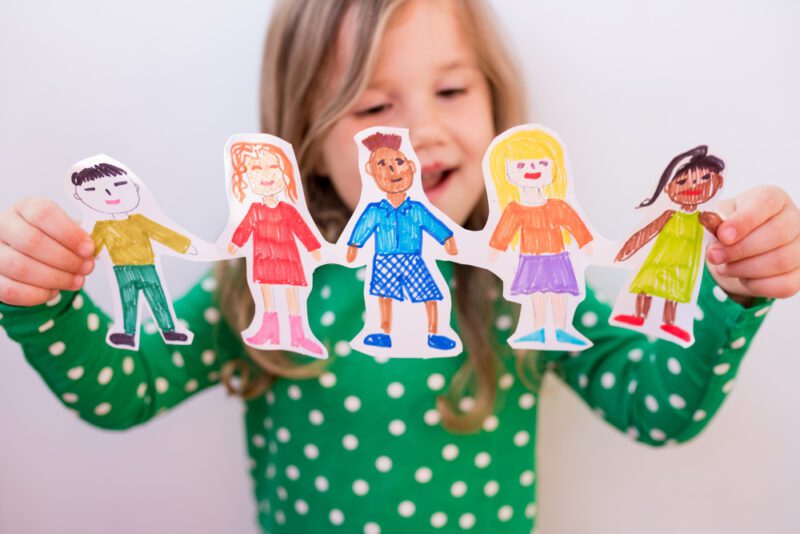
01 Oct Connecting Montessori & Halloween Traditions from Around the World
Connecting Montessori & Halloween Traditions from Around the World
In the community of Sugar Land, TX, the arrival of October is celebrated with much anticipation at Sugar Mill Montessori. This is not just due to the excitement of the Halloween season; it’s a time for a deep dive into the rich tapestry of global cultures and traditions and the opportunity to explore multicultural learning. The significance of Halloween is thus elevated, stretching beyond the confines of trick-or-treating in the United States to include special celebrations around the world where people remember loved ones, celebrate the harvest, and take part in other important traditions.
Want to discover how Halloween fun is integrated with learning at Sugar Mill Montessori? Read more here.
Bridging Cultures through Montessori Education
At the core of Montessori education lie the principles of respect, empowerment, and a comprehensive approach to learning. These guiding values make this educational framework an optimal platform for integrating and honoring cultural traditions into the curriculum. Halloween provides a magnificent lens through which to explore, respect, and understand global celebrations, fostering an atmosphere of cultural inclusivity among young learners.
Exploring Global Festivities: A Montessori Guide to the World’s Celebrations
Exploring global festivities through a Montessori lens educates children about diverse cultures and invites them to celebrate the rich tapestry of traditions from around the world.
Día de Los Muertos – A Radiant Mexican Heritage
In Mexico, Día de Los Muertos stands as a joyful commemoration of the dearly departed. This tradition, brimming with symbolism from the altars or “ofrendas” adorned with marigold flowers to the intricately crafted sugar skulls bearing the names of the departed, offers a window into the essence of Mexican cultural reverence for ancestors. Within Montessori classrooms, the making of papel picado, a quintessential Mexican craft, not only bolsters fine motor skills but deepens an appreciation for Mexican cultural heritage, illustrating the Montessori emphasis on hands-on learning.
Samhain – The Celtic Ancestry of Halloween
The roots of Halloween trace back to Samhain, an ancient Celtic festival marking the end of harvest and the beginning of winter. It was believed that during Samhain people could connect with their loved ones who had passed. By exploring these age-old traditions, children are introduced to the rhythms of nature and the transition between seasons, and they gain insight into the cultural origins of modern-day Halloween practices.
Pangangaluluwa – A Filipino Observance of Remembrance
Similar to the concept of trick-or-treating, Pangangaluluwa is a Filipino tradition involving children singing from house to house to remember their ancestors. This practice serves as a poignant reminder of the universal human experience of remembrance across cultures. Highlighting such traditions in the Montessori environment encourages empathy and a deeper understanding of global customs related to honoring those we’ve lost.
Diwali – The Indian Festival of Lights
Moving to the Indian subcontinent, Diwali, the festival of lights, though not directly related to Halloween, shares themes of light conquering darkness and the joy of community gatherings. Montessori classrooms can explore the making of diyas (small lamps) and rangoli (art patterns), offering sensorial experiences and insights into Indian cultural practices that celebrate life, victory, and hope.
Yue Lan – The Chinese Festival of the Hungry Ghosts
In Chinese culture, Yue Lan, or the Hungry Ghost Festival, stands as a pillar of remembering ancestors. The festival is observed through offerings, ceremonies, and the making of lanterns to honor and remember loved ones. Integrating such traditions into the Montessori curriculum illuminates not only the tangible aspects of these practices but also their underlying values and beliefs.
Towards Inclusive Education: Lessons from Global Traditions
By weaving the threads of global festivities into the Montessori fabric, we equip our children with invaluable lessons in empathy, diversity, and cultural respect. These lessons extend far beyond the classroom, nurturing young individuals who are knowledgeable about the world’s cultures and compassionate global citizens.
Celebrating Diversity at Sugar Mill Montessori
At Sugar Mill Montessori, Halloween transforms into a global expedition. Each tradition explored, each custom shared, paves the way towards fostering a diverse community of learners. Through hands-on activities and storytelling, children embark on a journey that transcends geographical and cultural boundaries, discovering that our shared human experiences unite us across cultures.
Contact Sugar Mill Montessori today to learn more about our dynamic, multicultural learning environment and see how we can make this festive season educational and memorable for your child!
An Invitation to a Global Learning Experience
This Halloween, we extend an invitation to delve into a world where learning about and respecting cultural diversity is at the forefront. At Sugar Mill Montessori, every day is a celebration of the rich, intricate mosaic of world traditions.
In this spirit of exploration, our curriculum emphasizes the interconnectedness of history, literature, and the arts with diverse cultural roots, exemplifying how global traditions, such as Mexico’s Dia de los Muertos or China’s Hungry Ghost Festival, interweave with our own.
Connect with Sugar Mill Montessori
We welcome you to connect with us to learn more about our inclusive approach to education and how we celebrate the beauty of global diversity through our Montessori curriculum. Schedule a visit to Sugar Mill Montessori and embark on a tour to see the rich educational experiences we offer. Seize this opportunity for your child to grow as an informed, respectful, and curious global citizen inspired by the diversity and unity of the human spirit.



Sorry, the comment form is closed at this time.